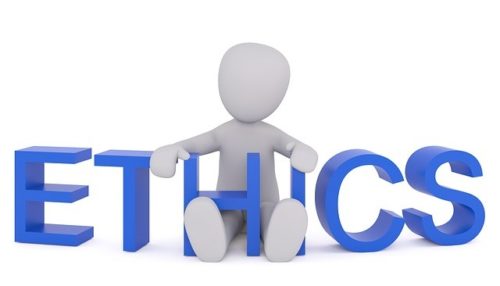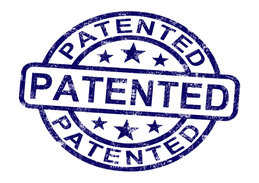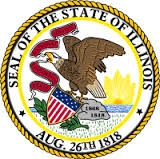-
All Courses Approved by The Florida Bar Florida 3 Credit Technology Bundle
-
All Courses Approved by The Florida Bar Florida 6 Credit Ethics and Technology Bundle
-
Fundamentals of Civil Litigation in Federal Court In this timely, and compelling, CLE course Attorney Thomas R. Schuck covers the Fundamentals of Civil Litigation in Federal Court. The program begins with an overview of how to commence an action and case management. Attorney Schuck continues by going over the process of summary judgment, arbitration, and trial. Mr. Schuck concludes the program with a discussion on judgments and appeals. This program is a must listen for anyone who wishes to learn more about the FRCP. Agenda Commencing An Action Case Management and Discovery Summary Judgement Arbitration and Mediation Trial Judgement and Post Judgement Issues Appeal
-
Fundamentals of Patent Prosecution - 2.0 Credit Hours In this timely, and compelling, CLE program Attorney Tyler Dunham covers Patent Prosecution or alternatively: The Basics of How to Obtain a Patent. Attorney Dunham will take participants, from beginning, to the end of how to obtain a patent. The program begins with information about the USPTO and types of patents. Mr. Dunham will continue the program with an explanation of the application process and the paperwork involved. Mr. Dunham will, also, cover the prosecution process in great detail. The program will conclude with a discussion on international patents and patent enforcement. This program is for anyone who wishes to learn more about patents and the patent process. Agenda General Info About the USPTO What Types of Tech can be Patented? 35 USC 101 What Types of Tech cannot be Patented? Who Can File Patent Applications? Types of Applications Other Miscellaneous Paperwork Usually Filed Patent Searching The Prosecution Process After Allowance International Patenting Patent Enforcement
-
Gambling Addiction for Lawyers Recent studies have shown that there has been a dramatic increase in impairment due to alcoholism, drug addiction and mental health disorders among members of the legal profession. The statistics are compelling and clearly indicate that 1 out of 3 attorneys will likely have a need for substance use or mental health services at some point in their careers. What about that “other” addiction – Gambling ? In 2018, the United States Supreme Court, in Murphy vs. NCAA, held that sports gambling was legal in all of the United States. By 2020, 22 states had added on-line gambling accessible by cell phone, computer and tablets. With it came the compulsive gambler. This program will explore not only Gambling Disorder, but also the connection between gambling and the more well -known forms of impairment and why lawyers are at higher risk to develop problems. This problem has only been exacerbated by the stress, anxiety and isolation caused by the Coronavirus crisis. The results are startling. Agenda:
- The early warning signs of impairment and how they relate to gambling disorders. Special attention will be given to the connection between the Coronavirus and it’s impact on social isolation, stress, anxiety, depression and gambling disorders.
- The free services that Lawyers Assistance Programs provide to lawyers, judges, their family members and law students.
- A close look at what barriers exist that prevent lawyers and judges from seeking the help they need will be provided.
- The role that education plays in breaking the stigma and fear associated with addiction and mental illness in the legal profession.
-
Help for the Helper: The Effects of Trauma and Compassion Fatigue on the Lawyer Who Cares Many of us were attracted to the legal profession because we care about people and want to help them. Attorneys hopefully recognize that, unlike many other professionals, their lives are already filled to the brim with anxiety and stress.The consequences of shrugging it off can be catastrophic. One of those consequences that we often hear about is burnout. And then there’s a special type of burnout called “secondary traumatic stress” or “compassion fatigue”. The ramifications of trauma and compassion fatigue aren’t discussed as frequently as those of stress and burnout thus, for many attorneys, they are topics in need of attention. Secondary or vicarious trauma can be the cumulative effect of listening to a client or witness relay graphic stories and experiences. Those who experience compassion fatigue tend to take on the pain, suffering and burdens of the people they are helping. It is an exhaustion that is felt physically, emotionally or mentally and can affect numerous areas of your life, often leaving you feeling numb. Recent studies have shown that there has been a dramatic increase in impairment due to alcoholism, addiction and mental health disorders among members of the legal profession. The statistics are compelling and clearly indicate that 1 out of 3 attorneys will likely have a need for substance use or mental health services at some point in their careers. Mr. Quinn will discuss: 1. The early warning signs of impairment, with special emphasis on stress, burnout, trauma and compassion fatigue. 2. The free services that Lawyers Assistance Programs provide to lawyers, judges, their family members and law students. 3. A close look at what barriers exist that prevent lawyers and judges from seeking the help they need will be provided. 4. The role that education plays in breaking the stigma and fear associated with addiction and mental illness in the legal profession. 5. How best to approach the impaired individual.
-
How Marijuana Use Can impair an Attorney’s Ability to Perform Legal Services with Competence: The Mental, Physical, Addictive, and Impairing Side Effects Many attorneys have not heard how much stronger marijuana is today. In this timely presentation, Heidi will provide basic information about the new high potency products. By understanding the side effects these new products present, a lawyer can recognize the warning signs and reduce his/her risk for addiction, mental illness and impairment. Heidi Anderson - Swan’s brother was a homeless drug addict with schizophrenia who went to jail eighteen times. In this CLE, she will begin by sharing their personal stories. She will continue with up-to-date information about the risks of marijuana use every lawyer should know. Agenda -Heidi & Kirk: Occasional User and Chronic User of 1970’s Pot -Marijuana and Psychosis/Schizophrenia, Anxiety, Depression, Bipolar Disorder, Suicide -How Weed Has Changed Since the 1970’s -High Potency Products: What Are They? What Are Their Side Effects? -How to Detect Warning Signs -Potential for Impaired Driving
-
How the IRS Reconstructs Income in Tax Fraud Cases
-
How to Cross Examine a Medical Witness In this timely, and compelling, program attorney, John Scalia, presents, “How to Cross Examine a Medical Witness”. Mr. Scalia will introduce the program with the cardinal rules a lawyer must follow on cross examination. The program will continue with a discussion of personal considerations. Mr. Scalia, then, masterfully provides real life examples and gives an overview of dealing with reports. The program concludes with an explanation of surveillance. This program is a must for any attorney. Agenda The Three Cardinal Rules
- Know the medicine
- Know the facts
- Know how the law affects the medicine and the facts
- witness hostile
- judge or jury hostile
- interfering with objectivity. (Ours)
-
Illinois 30 Credit Bundle with Ethics – All Courses Approved in Illinois Esquire CLE's Illinois Provider Number: ESQ0002 Bundle Courses Include: Dealing with the Disruptive Practitioner in a Legally Compliant Manner (1 Credit) The Anti-Kickback Statute (1 Credit) Unfair, Deceptive, or Abusive Acts or Practices (UDAAP) (1.25 Credits) Off the Clock: Professional Ethics On Personal Time (1 Ethics Credit) Ethics and Professionalism: The Art of Graceful Disagreement (1 Ethics Credit) A Lawyer’s Guide to Ethics and Ethical Networking in a Virtual World (2 Ethics Credits) Elimination of Bias in the Legal Profession: Both Personally and Professionally (1 Diversity and Inclusion Credit) Attorney Licensure and the Impaired Professional (1 Substance Abuse Credit) Effective and Ethical Use of Expert Anatomy of a Civil Tax Controversy (1.5 Credits) Closing Arguments (1.75 Credits) Cross Examination Made Simple (1.5 Credit) Direct Examination: Making the Witness Look Good (1.25 Credits) Evidence 101 (1.5 Credits) Evidence 102 (1.25 Credits) Fair Debt Collection Practices Act (1 Credit) Information Law Firms Collect and Store – What to do in the Event of a Cyber Breach? (1.25 Credits) How the IRS Reconstructs Income in Tax Fraud Cases (1.5 Credit) NCAA & Name, Image, Likeness – Updates & Anarchy in America! (1.25 Credits) Online Civility and Professionalism for Attorneys (1 Ethics Professional Responsibility Credit) Opening Statement As a Story - 101 (1 Credit) Opening Statements As a Story - 102 (1.5 Credit) Order in the Court: Ethical Interaction With Judges (1 Ethics Professional Responsibility Credit) Overview of the Freedom of Information Act (2 Credits) Paying for Referrals: A Danger to the Payor and Recipient's Freedom (1.25 Credits) Taking Off the Gloves: What to Expect in U.S. Tax Court (1.5 Credits) Unauthorized Practice of Law: Ethical Dilemmas and the Rule of Law (1 Ethics Professional Responsibility Credit )
-
Illinois 30 Credit Bundle with Ethics – All Courses Approved in Illinois Esquire CLE's Illinois Provider Number: ESQ0002
-
Illinois 30 Credit Bundle with Ethics – All Courses Approved in Illinois Esquire CLE's Illinois Provider Number: ESQ0002
-
Illinois Bundle: 6 Ethics and Professional Credits
Bundle Courses Include: Technology & Bias Spreading It And Stopping It (1 Diversity and Inclusion Credit) Intervention Strategies for Helping the Legal Professional (1 MH and SA Credit) Ethical Obligations for Clients with Mental Health Impairments (1 Ethics Credit) Unauthorized Practice of Law: Ethical Dilemmas and the Rule of Law (1 Ethics Professional Responsibility Credit) Order in the Court: Ethical Interaction With Judges (1 Ethics Professional Responsibility Credit) Online Civility and Professionalism for Attorneys (1 Ethics Professional Responsibility Credit) -
Illinois Ethical, Diversity, and Substance Abuse Bundle -3.0 Credit Hours Bundle Course Include: Technology & Bias Spreading It And Stopping It (1 Diversity and Inclusion Credit) Intervention Strategies for Helping the Legal Professional (1 MH and SA Credit) Ethical Obligations for Clients with Mental Health Impairments (1 Ethics Credit)
-
Immigration Basics: Coming to America and Staying
-
Indiana 18 Credit Bundle With 3 Ethics - All Courses Approved in Indiana
-
Indiana 3 Credit Ethics Bundle - All Courses Approved in Indiana
Bundle Courses Ethical Issues - Pro Bono Representation: Help the Profession Help Others (1 Ethics Credit) Online Civility and Professionalism for Attorneys (1 Ethics Credits) Intervention Strategies for Helping the Legal Professional (1 Ethics Credit) -
Indiana 36 Credit Bundle With 3 Ethics - All Courses Approved in Indiana Courses include: Story Telling in the Courtroom Part 1 (1.5 Credits) Story Telling in the Courtroom Part 2 (1.3 Credit) Story Telling in the Courtroom Part 3 (1 Credit)
Basics of How to Obtain a Patent (2 Credits)
Immigration Basics: Coming to America and Staying (1 Credit) Ethical Issues - Pro Bono Representation: Help the Profession Help Others (1 Ethics Credit) Online Civility and Professionalism for Attorneys (1 Ethics Credits) Intervention Strategies for Helping the Legal Professional (1 Ethics Credit) The Fifth Amendment’s Essential Role in Offshore Audits (1.5 Credits) Digital Millennium Copyright Act (1 Credit) Information Law Firms Collect and Store – What to do in the Event of a Cyber Breach? (1.5 Credits) Overview of the Freedom of Information Act (2 Credits) How the IRS Reconstructs Income in Tax Fraud Cases (1.5 Credits) Cross Examination Made Simple (1.5 Credits) Eating, Sex, and Exercise Disorders for Lawyers (1 Credit) Unfair, Deceptive, or Abusive Acts or Practices (UDAAP) - (1.3 Credits) Opening Statement As a Story - 101 (1 Credit) Technology & Bias Spreading It And Stopping It (1.3 Credit) Direct Examination: Making the Witness Look Good (1.3 Credits) Fair Debt Collection Practices Act (1 Credit) Everything You Want to Know About Distressed Lawyers (1 Ethics Credit) Lemon Law (1.2 Credits) Civil Settlement Techniques (1.8 Credits) Be it Resolved - Striving for A (Realistic) Work/Life Balance (1 Credit) When Good Enough Isn't Good Enough - Perfectionism in the Legal Profession (1 Credit) Ethical Obligation for Clients with Mental Health Impairments (1 Ethics Credit) Navigating Malpractice: Critical Elements and Legal Defenses (1.5 Credits) Virtual Isolation: Is Hyperconnectivity Helping or Harming the Legal Professional? (1 Ethics Credit) Estates for Personal Injury Litigators - (1 Credit) Religious Land Use and Institutionalized Persons Act - (2 Credits) -
Indiana 36 Credit Bundle With 3 Ethics - All Courses Approved in Indiana Courses include: Story Telling in the Courtroom Part 1 (1.5 Credits) Story Telling in the Courtroom Part 2 (1.3 Credit) Story Telling in the Courtroom Part 3 (1 Credit)
Basics of How to Obtain a Patent (2 Credits)
Immigration Basics: Coming to America and Staying (1 Credit) Ethical Issues - Pro Bono Representation: Help the Profession Help Others (1 Ethics Credit) Online Civility and Professionalism for Attorneys (1 Ethics Credits) Intervention Strategies for Helping the Legal Professional (1 Ethics Credit) The Fifth Amendment’s Essential Role in Offshore Audits (1.5 Credits) Digital Millennium Copyright Act (1 Credit) Information Law Firms Collect and Store – What to do in the Event of a Cyber Breach? (1.5 Credits) Overview of the Freedom of Information Act (2 Credits) How the IRS Reconstructs Income in Tax Fraud Cases (1.5 Credits) Cross Examination Made Simple (1.5 Credits) Eating, Sex, and Exercise Disorders for Lawyers (1 Credit) Unfair, Deceptive, or Abusive Acts or Practices (UDAAP) - (1.3 Credits) Opening Statement As a Story - 101 (1 Credit) Technology & Bias Spreading It And Stopping It (1.3 Credit) Direct Examination: Making the Witness Look Good (1.3 Credits) Fair Debt Collection Practices Act (1 Credit) Everything You Want to Know About Distressed Lawyers (1 Ethics Credit) Lemon Law (1.2 Credits) Civil Settlement Techniques (1.8 Credits) Be it Resolved - Striving for A (Realistic) Work/Life Balance (1 Credit) When Good Enough Isn't Good Enough - Perfectionism in the Legal Profession (1 Credit) Ethical Obligation for Clients with Mental Health Impairments (1 Ethics Credit) Navigating Malpractice: Critical Elements and Legal Defenses (1.5 Credits) Virtual Isolation: Is Hyperconnectivity Helping or Harming the Legal Professional? (1 Ethics Credit) Estates for Personal Injury Litigators - (1 Credit) Religious Land Use and Institutionalized Persons Act - (2 Credits) -
Indiana 9 Credit Bundle With 3 Ethics - All Courses Approved in Indiana
-
Information Law Firms Collect and Store – What to do in the Event of a Cyber Breach? When storing information, it can be done on paper or digitally on personal/shared computers, systems, files, or vendor applications. Regulatory requirements like state laws, GLBA, FERPA, GDPR must be considered. Plan and risk assessments, encryption, and access controls are used to support compliant environments. Protocols for breaches, legal holds, and employee changes must be put in place. Third-party vendors and outsourced staff must be considered. In case of a breach, notifying insurance carriers, healthcare providers, finance entities, schools, and individuals affected is crucial. AGENDA:
- Introduction to information storage
- Paper vs. digital storage
- Personal and shared computer storage
- System, files, and vendor application storage
- Regulatory requirements, including state laws, GLBA, FERPA, GDPR, and BAAs
- Risk assessments, plan development, and encryption
- Tailoring privacy practices to company size and IT capabilities
- Outsourced staff and third-party vendor considerations
- Processes for sharing information via email or e-sign
- Protocols for managing breaches, legal holds, and employee role changes
- Access controls, including physical, administrative, and technical measures
- Response to breaches, including notifying insurance carriers, healthcare providers, schools, and individuals affected
-
Information Technology for Lawyers In this timely, and compelling program, attorney Russell Jackman presents “Information Technology for Lawyers”. Mr. Jackman begins the program explaining how and why to update a law office computer system and uses windows as an example. The program continues with an overview of backups, cloud services, and firewalls. Mr. Jackman then discusses security tips and case management systems. Attorney Jackman concludes the program going over recent IT trends and fads. This program is for any attorney who has a computer. AGENDA:
- Upgrading Office System
- Windows
- Backups
- Cloud Services
- Antivirus/Firewalls
- Security Tips
- Case Management Systems
- Trends and Fads
-
Intermediate Topics: TITLE IX In this timely and compelling program, attorney, Adria L. Silva presents, “Intermediate Topics: TITLE IX”. Attorney Silva begins the program with an overview of TITLE IX basics and who can be sued within the Statute of Limitations. The program continues with a discussion of TITLE IX v. TITLE VII. Attorney Silva then covers applicable case law and intermediate topics such as internal investigations, sexual harassment, and gender discrimination. The program concludes with an explanation of the Family Education Rights and Privacy Act. This program is for any attorney. Agenda:
- TITLE IX Basics
- Who Can Be Sued and SOL
- Conditions Precedent
- TITLE IX v. TITLE VII
- Internal Investigations
- Sexual Harassment
- Gender Discrimination
- Retaliation
- Family Education Rights and Privacy Act








